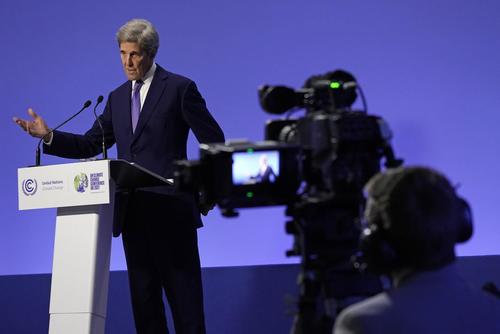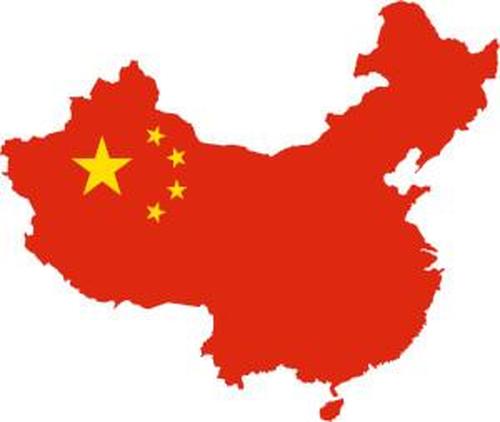This is a good conclusion for the Glasgow show of the last few days, but more than British Ambitions, it is the reset nonsense which was sent packing back in Glasgow.
I am old enough to remember that "islands" started sinking, in the press at least, in 1989 and would soon be underwater if we didn't do something drastic "before" the year 2000. Since, I started diving all over the place, and saw no drowning whatsoever, except due to human activities. No coral destruction except due to human pollution. We need to do more to save ourselves, (The planet is fine to paraphrase George Carlin!) but the efforts must be local, not global. Local people know what they must do and with the right incentives, they will. The cabal between large corporations and governments only serves private interests while having the community pay for it and professing through propaganda to do exactly the opposite of what we can see with our own eyes.
Authored by Rupert Darwall via RealClearEnergy.com,
The
Glasgow climate conference represents a strategic defeat for the West,
and for Britain in particular. Boris Johnson unleashed everything he
could muster. The royal family hosted receptions for multibillionaires.
The Foreign Office sent climate envoys around the world.
Glasgow would show the world that Britain could outdo France’s performance six years ago at the Paris climate conference.

Wrong. Whereas
the French knew what they were doing in Paris, the British were at sea
in Glasgow. The result was a display of the rank amateurishness of the
British state.
If Boris Johnson and his ministers had done their homework, they would have known they were on a road to nowhere. The
1997 Kyoto Protocol failed because it exempted the developing world
from cutting its emissions. The West attempted to remedy this at the
Copenhagen climate conference in 2009 with a climate treaty that would
bring the major emerging economies under a multilateral regime of
emission targets and timetables. The attempt was sunk by China, India,
South Africa, and Brazil acting in concert.
The West accounts for a declining share of global emissions.
“This was the moment when the rise of the oceans began to slow and our planet began to heal,” Barack Obama had boasted in 2008.
Obama and the West were desperate for a climate agreement to justify increasingly punitive domestic climate policies. The
Paris agreement is the climate equivalent of Mikhail Gorbachev’s
Sinatra Doctrine, under which the captive nations of eastern Europe
could do it their way. It signalled that the Soviet Union had lost the
Cold War. In similar fashion, the Paris agreement signalled that the
West had accepted its defeat and had given up its attempt to create a
multilateral regime of emission cuts. Instead, the Paris agreement is
based on nationally determined contributions. Each party to the
agreement would do it its way.
After Copenhagen, small
island states lobbied intensely to tighten the temperature target from 2
degrees above industrial levels to 1.5 degrees. Their islands,
they claimed, were in danger of sinking beneath the waves. The West
swallowed the sinking island sob story, which is how 1.5 degrees came to
be included in the Paris agreement as a subsidiary ambition to the
2-degree target. It was fake science, as the Intergovernmental Panel on
Climate Change (IPCC) later confirmed. “Observations, models and other
evidence indicate that unconstrained Pacific atolls have kept pace with
[sea level rise], with little reduction in size or net gain in land,”
the IPCC said in its net zero report.
Because Paris
included 1.5 in its text, the IPCC brought forward the indicative
timetable for net zero from the second half of the current century to
2050. In the waning days of her premiership in 2019, Theresa
May decided to make net zero her legacy. It was incorporated as a
binding target under the 2008 Climate Change Act after a ninety-minute
debate in the House of Commons, even though MPs had no idea how much it
would cost or whether it was remotely feasible. But one thing is clear:
whatever net zero costs Britain, it is pointless for Britain to
decarbonize if the rest of the world doesn’t follow suit. The
regulatory-impact assessment accompanying the Climate Change Act signed
by Ed Miliband as climate and energy secretary could not have been
clearer:
“The UK continuing to act while the rest of the world does not, would result in a large net cost for the UK.”
The benefits of UK climate action would be distributed around the world, but the UK would bear all the costs.
The
Climate Change Act was passed in the runup to the Copenhagen climate
conference, which was supposed to produce a binding climate treaty. “Showing leadership through the Climate Change Act, the UK will help to drive a global deal,” Miliband asserted, showing that climate hubris is embraced by all Britain’s political parties.
Now, for a second time, a UN climate conference has produced a dud. The
fantasy that Britain would lead and the rest of the world would follow
has been exposed. The question mark over net zero has been answered.
After Glasgow, we now know that net zero is all pain for no gain. With
Britain’s political class committed to the disastrous, dead-end path of
net zero, bring on the referendum.
PS: If you need to see the
"real" problem, here's a good start!
https://www.youtube.com/watch?v=2yV3Uj8qbCU



